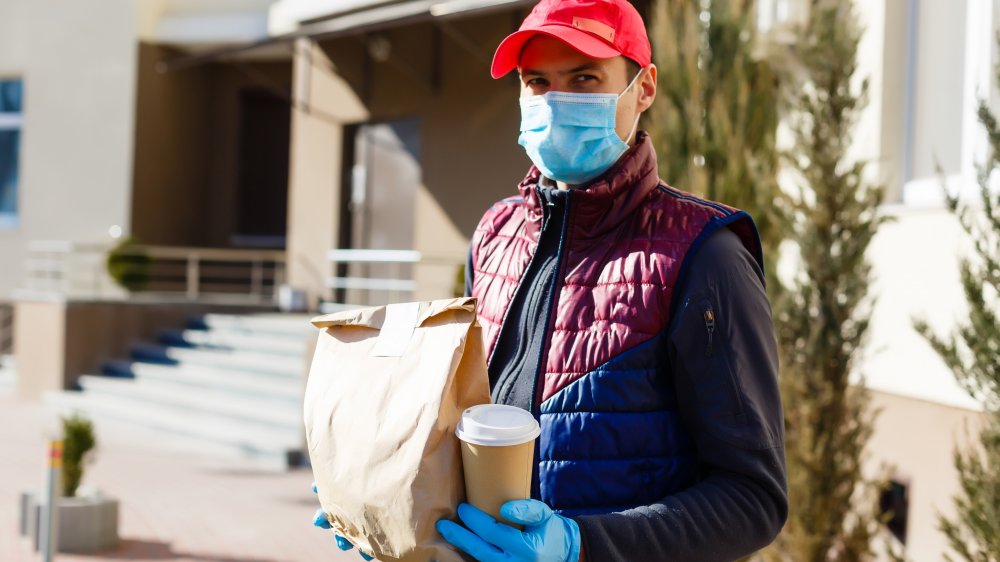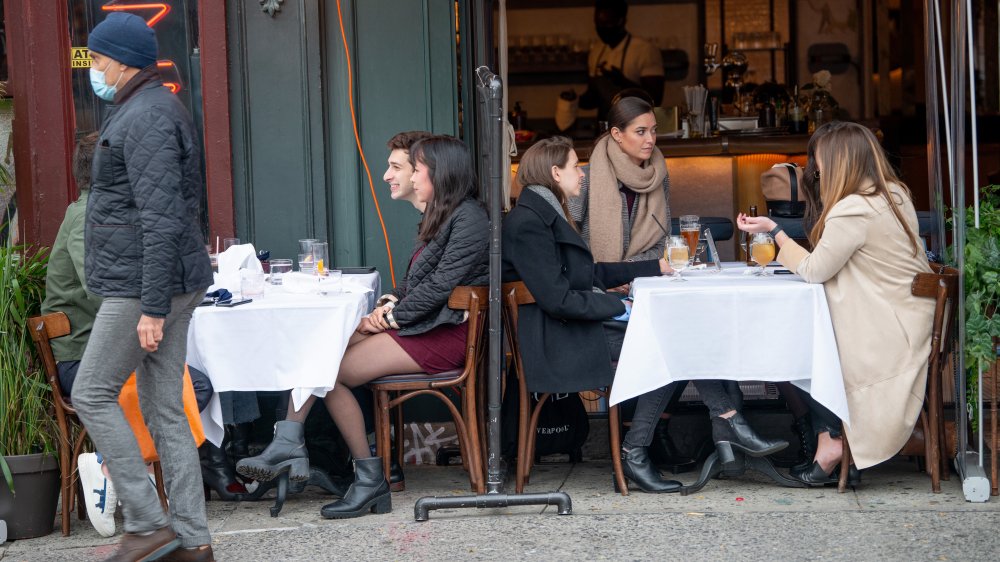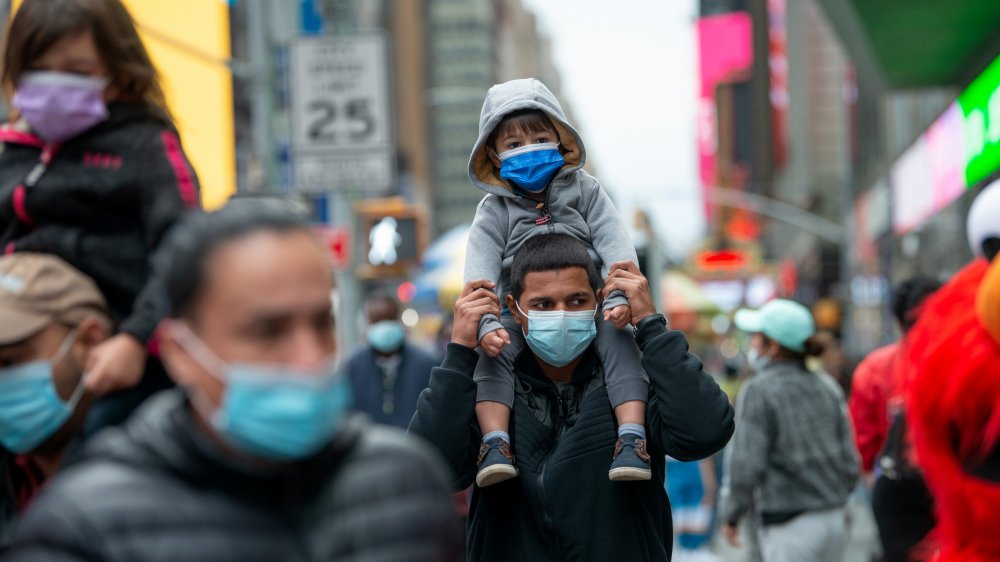There Is A Gender Gap When It Comes To COVID Safety Precautions. Here's Why
Two studies released this month show that men worldwide are less likely to perceive COVID-19 as a serious health problem and to follow preventative behaviors — something that puts their lives more in jeopardy.
An effective public health response to the worldwide pandemic requires compliance with behavioral changes such as wearing masks and isolating at home, said a team of international researchers in the Proceedings of the National Academy of Sciences of the United States of America (via PNAS). However, more women appear to be complying with these measures, according to this research and another study from the Behavioral Science & Policy Association based in Durham, North Carolina (via BSP).
In the PNAS research, scientists compiled answers from two surveys of thousands of men and women in March and April in eight countries: Australia, Austria, France, Germany, Italy, New Zealand, the United Kingdom, and the United States.
"All these countries have high income per capita and advanced health systems, allowing us to pool their data in a common analysis, but they were affected very differently by the pandemic, increasing the external validity of our results," the researchers wrote. The United States, the United Kingdom, and Italy had the highest mortality rates of COVID-19 in the world while as of May 31, Australia and New Zealand each had fewer than 200 deaths.
Men and women view protective measures differently
The data from all eight countries showed that in March, 59 percent of female respondents considered COVID-19 a serious health problem, compared with about 49 percent of male respondents. By the second survey wave in April, those proportions had decreased, but a "significant gender difference remained."
The behavioral science research compared patterns for men and women in three different studies in the United States earlier this year. In one survey of 800 people, women reported washing their hands more frequently, staying home more, and practicing social or physical distancing more often than men did. Another study of people in the northeastern United States found that 55 percent of women wore masks compared with 38 percent of men.
"Collectively, our results suggest that failing to engage in preventive practices may be putting men at higher risk of catching and spreading COVID-19," these researchers wrote.
Dr. Richard Seidman, chief medical officer of L.A. Care Health Plan in California, told Healthline that society puts more pressure on men to appear tough. "Many studies have shown that men are less likely to follow recommendations for routine annual health exams and other preventive measures. Generally speaking, women have been responsible for family health, where men have been more reluctant to talk about health," he said.
Researchers stress focusing on men's concern for others rather than invulnerability
These recent studies support a similar one in May from researchers at Middlesex University in London and the Mathematical Science Research Institute in Berkeley, California, that found fewer men wear face coverings than women. This is partly explained by men's belief that "they will be relatively unaffected by the disease," which is "particularly ironic because official statistics show that actually the coronavirus (COVID-19) impacts men more seriously than women" (via the online psychology archive PsyArXiv).
In addition, men reported more negative emotions when wearing a face covering, such as that it's "shameful, not cool, a sign of weakness, and a stigma."
The researchers from the Behavioral Science & Policy Association recommended that policymakers "fine-tune preventative health policies so that they do a better job of influencing men," in particular by targeting "men's illusions of invulnerability (which are supported by traditional views of masculinity) and remind[ing] them of their responsibilities to others and themselves during this critical period."



